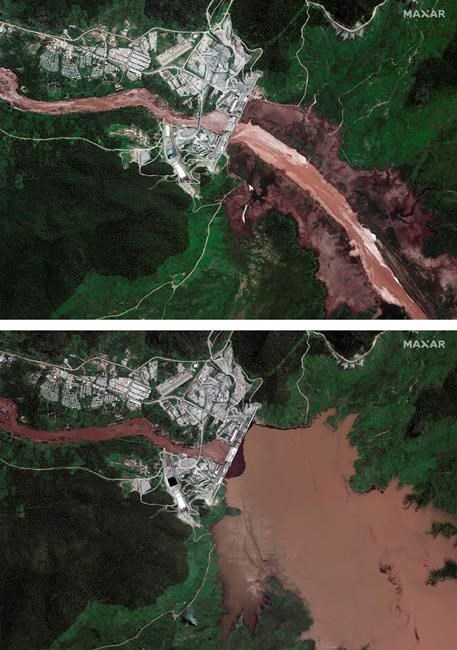ADDIS ABABA, Ethiopia — Ethiopia’s water minister denied reports Wednesday that the government had begun filling a massive hydroelectric dam that has caused severe tensions with Egypt and led some to fear military conflict.
Media outlets reported the government had begun filling after Minister Sileshi Bekele confirmed to the Ethiopian Broadcasting Corporation that satellite images from recent days showed the dam’s reservoir swelling.
The minister told The Associated Press, however, that the images reflected heavy rains, saying that inflow was greater than the outflow. He later tweeted saying it created “natural pooling.”
On Tuesday, International Crisis Group analyst William Davison told the AP that images of the swelling reservoir captured on July 9 by a European Space Agency satellite likely show a “natural backing-up of water behind the dam.”
Ethiopia’s latest round of talks with Egypt and Sudan on an agreement over the operation of the $4.6 billion Grand Ethiopian Renaissance Dam failed early this week.
Ethiopia has said it would begin filling the dam's reservoir this month even without a deal as the rainy season floods the Blue Nile.
Ethiopia says the colossal dam offers a critical opportunity to pull millions of its nearly 110 million citizens out of poverty and become a major power exporter. Downstream Egypt, which depends on the Nile to supply its farmers and booming population of 100 million with fresh water, asserts that the dam poses an existential threat.
Years of talks with a variety of mediators, including the Trump administration, have failed to produce a solution. Last week’s round, mediated by the African Union and observed by U.S. and European officials, proved no different.
Sudanese Irrigation Minister Yasser Abbas on Monday said the parties were “keen to find a solution,” but technical and legal disagreements persist over its filling and operation.
Most important, he said, are the questions about how much water Ethiopia will release downstream if a multi-year drought occurs and how the countries will resolve any future disputes.
Kevin Wheeler, a researcher at the Environmental Change Institute, University of Oxford, told the AP that the escalating rhetoric is more due to changing power dynamics in the region. Fears of any immediate water shortage “are not justified at this stage at all.
“If there were a drought over the next several years, that certainly could become a risk,” he said.
Elias Meseret, The Associated Press


